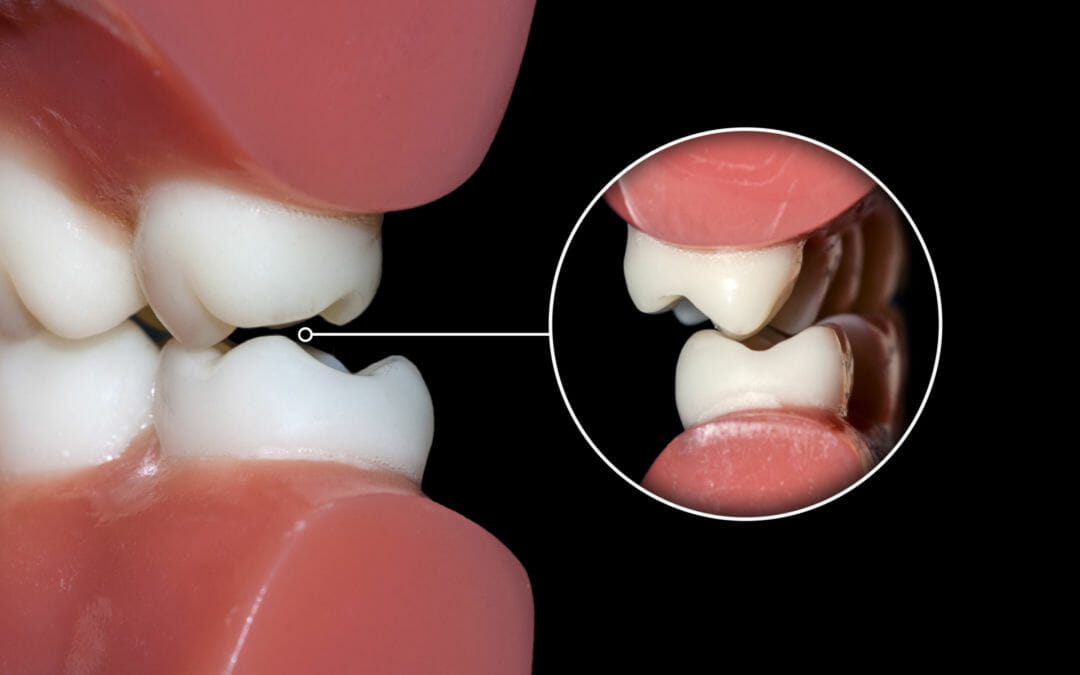It’s unknown exactly how many people grind their teeth at night, but some studies say it could affect more than 10% of adults. Despite being a common problem, tooth grinding puts a lot of wear and tear on your smile, which is best avoided when possible. It’s unlikely you’ll notice the grinding problem until your dentist mentions wear or you notice a tightness in your jaw. When you’re aware that you’re clenching and grinding at night, you can use the following steps to help reverse the problem and limit damage in the meantime.
Reduce Stress Levels
The biggest task you face in ending the tooth-grinding problem is dealing with your stress levels. High stress is the number one cause of tooth grinding. The grinding tends to worsen when stress increases in your life. This can be due to everyday routine stressors like your career and family obligations, or it could be due to a specific anxiety disorder. If your efforts to reduce stress on your own aren’t working, you may want to discuss your lifestyle with a therapist so they can evaluate you for anxiety. If an anxiety disorder is a part of why you’re clenching and grinding your teeth, you may need more treatment focused on your stress levels before your grinding will stop.
Practice Jaw Exercises
It may seem counteractive to exercise the muscles in the jaw that are getting sore from clenching or grinding. However, doing the right stretches and movements can relieve tension and reduce the chances you’ll keep grinding at night. There are a number of exercises, and you can either learn them on your own through instructional videos or ask your dentist to demonstrate the techniques. Many are physical, such as chin tucks to length the jaw muscles and reduce tension, but others are more mental and focus on teaching you to notice muscle tension and relax it.
Rub the Tight Jaw Muscles
Rubbing your sore jaw muscles alone won’t stop your tooth-grinding habit. Yet it will go a long way in reducing general tightness and soreness, which in turn helps reduce the chances you’ll repeat the process at night. You can see a massage therapist for a targeted neck and head massage, but a lot of the basic steps you can do to yourself at home. The masseter muscle that opens and shuts your jaw is one of the strongest in the body. You can try massaging it by gently pressing on your cheeks, starting just under your eyes and running down to the edge of the jaw.
Use a Nightguard
Even if you plan to completely stop your tooth grinding, you should invest in a custom-fitted nightguard to prevent enamel loss and damage until you reach your goal. Nightguards are worn while you are sleeping, either to cover the top or bottom row of teeth. Your dentist can help you determine which will be comfortable and effective depending on how you’re grinding. Nightguards are the single most important treatment for tooth grinding because they prevent physical damage to the teeth. Yet you still may feel tightness in the jaw since they can’t actually stop the clenching action, which is why you need to treat the causes of tooth grinding rather than just getting used to using a nightguard.
Try a Dayguard
For people with severe teeth-grinding problems, wearing a nightguard may not offer enough protection. Wearing a mouth guard during the day can keep jaw clenching from damaging your teeth if you find it hard to control the action. Again, a day guard should be treated as a temporary form of protection rather than a long-term solution. It must also receive custom fitting from the dentist for comfort and durability.
Avoid Excess Chewing
If you have a habit of chewing gum or picking extra chewy snacks, you may need to stop. Excessive chewing or using a lot of force to chew your food can increase the chances you’ll experience tooth grinding at night. Aim to avoid overworking the jaw muscles during the day, at least while you’re still experiencing the grinding issues. It can be due to tightened muscle tissue that can’t relax while you’re asleep.
Exercise More
Increasing your exercise levels, especially cardiovascular workouts, can go a long way in reducing the amount of tooth-grinding you experience at night. Regular exercise is one of the best ways to relieve stress. It also helps with tension disorders that lead to behavior like jaw clenching or leg movements due to excessive signals being sent to the muscles while asleep. Exercising the whole body during the day reduces the sensitivity of this signaling system through use, therefore resolving many cases of tooth grinding.
We can help here at Eastgate Dental Excellence with any kind of tooth-grinding or jaw-clenching problem. Come see us today to discuss your options for getting a nightguard and treating the underlying causes of these issues.

